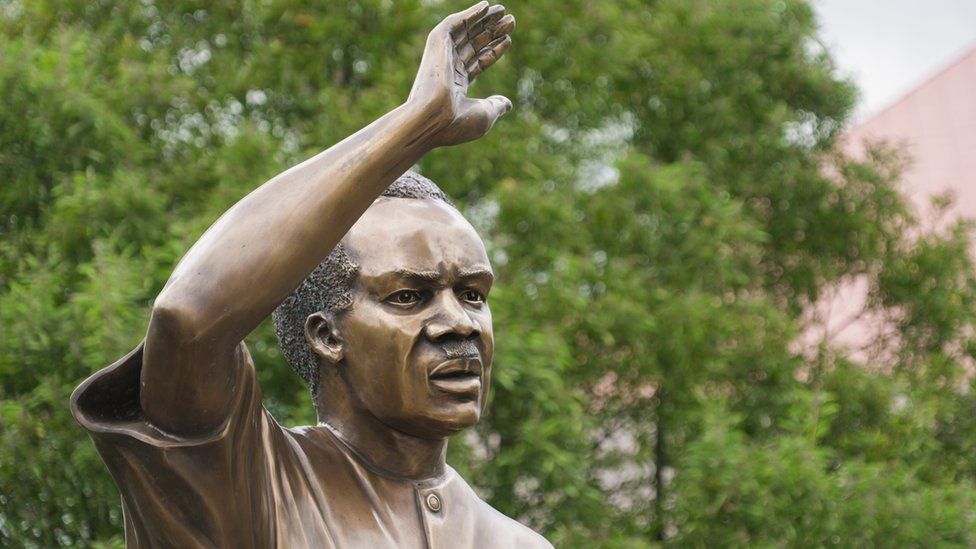-

-
-
Loading

Loading

Julius Nyerere, the founder of Tanzania, has been recognized with a statue outside the African Union headquarters in Addis Ababa, Ethiopia. Nyerere led Tanzania from independence in 1961 until 1985 and was known as Mwalimu, which means teacher in Swahili. He was a strong advocate for pan-Africanism and provided support to independence fighters opposing white minority rule in southern Africa. Nyerere played a crucial role in establishing the Organisation of African Unity, which later became the African Union. At the unveiling ceremony, attended by several African heads of state, AU Commission leader Moussa Faki Mahamat highlighted Nyerere's legacy of Pan Africanism, wisdom, and dedication to Africa. Nyerere's vision of a united Tanzania, encompassing diverse ethnic groups, involved promoting the use of Swahili as a common language and implementing his concept of African Socialism, known as ujamaa. While he successfully achieved unity, his attempts to create an egalitarian society based on cooperative agriculture faced significant challenges, and Tanzania's economy struggled during his tenure. Nevertheless, Nyerere made significant improvements in healthcare and literacy, earning him widespread admiration in Tanzania. He also advocated for Western governments to take a stronger stand against white-minority rule in Rhodesia and South Africa during the 1970s. Additionally, he opposed the expulsion of Asians in neighboring Uganda under Idi Amin. Nyerere's statue is the third to be erected outside the AU headquarters, joining those of Ghana's Kwame Nkrumah and Ethiopia's Haile Selassie. Nyerere, who died in 1999, continues to be honored with various landmarks and a public holiday in Tanzania.